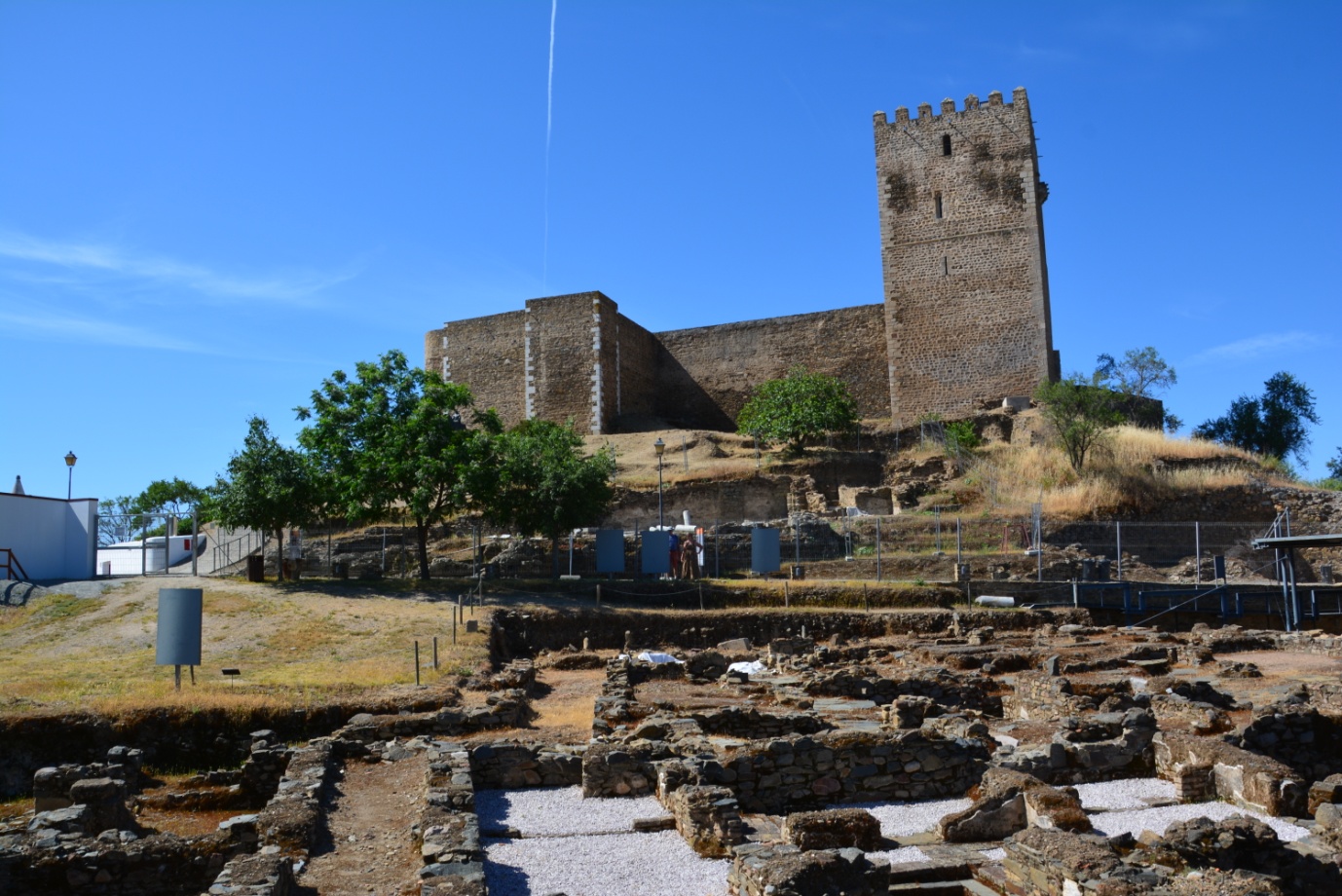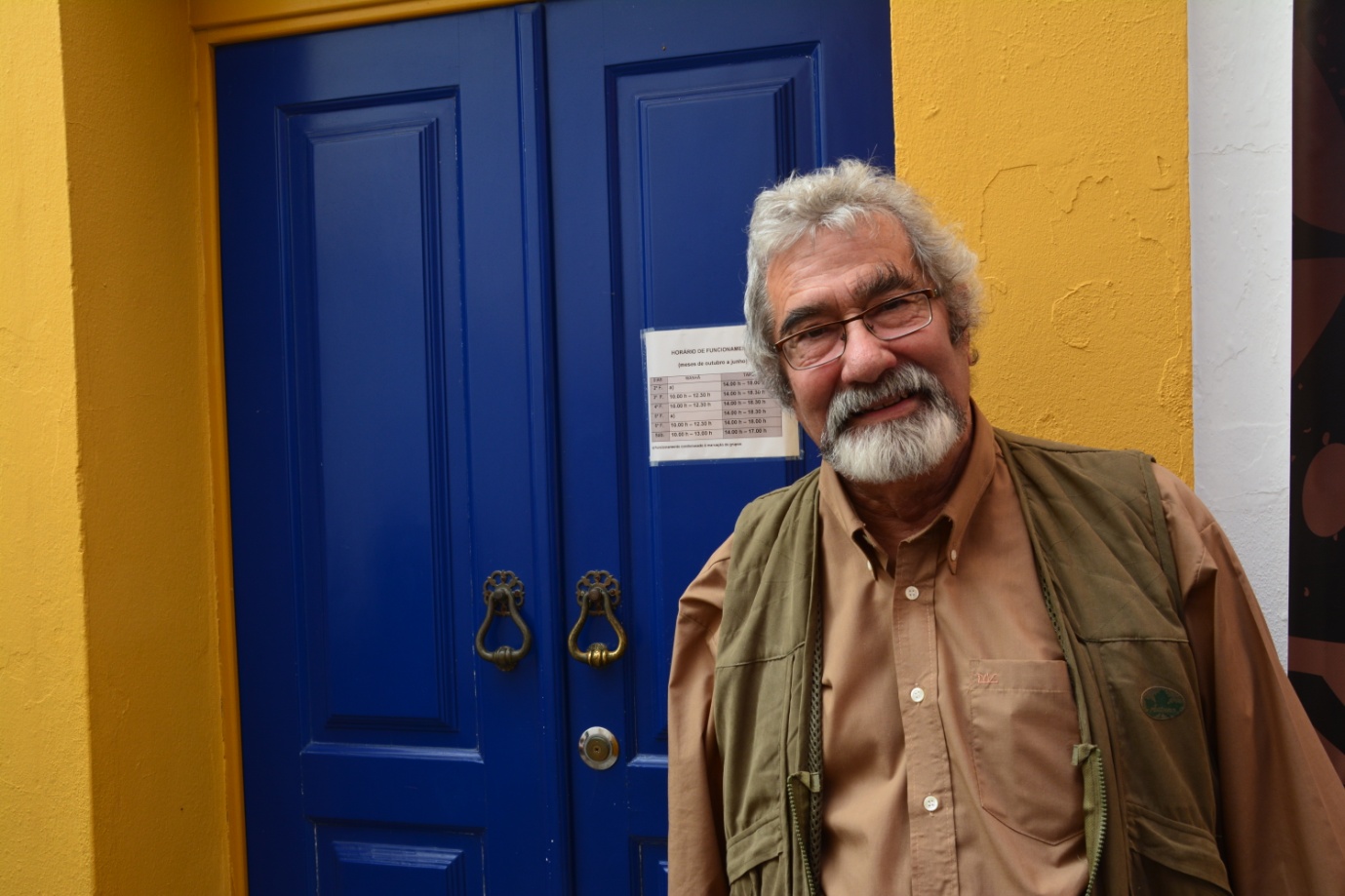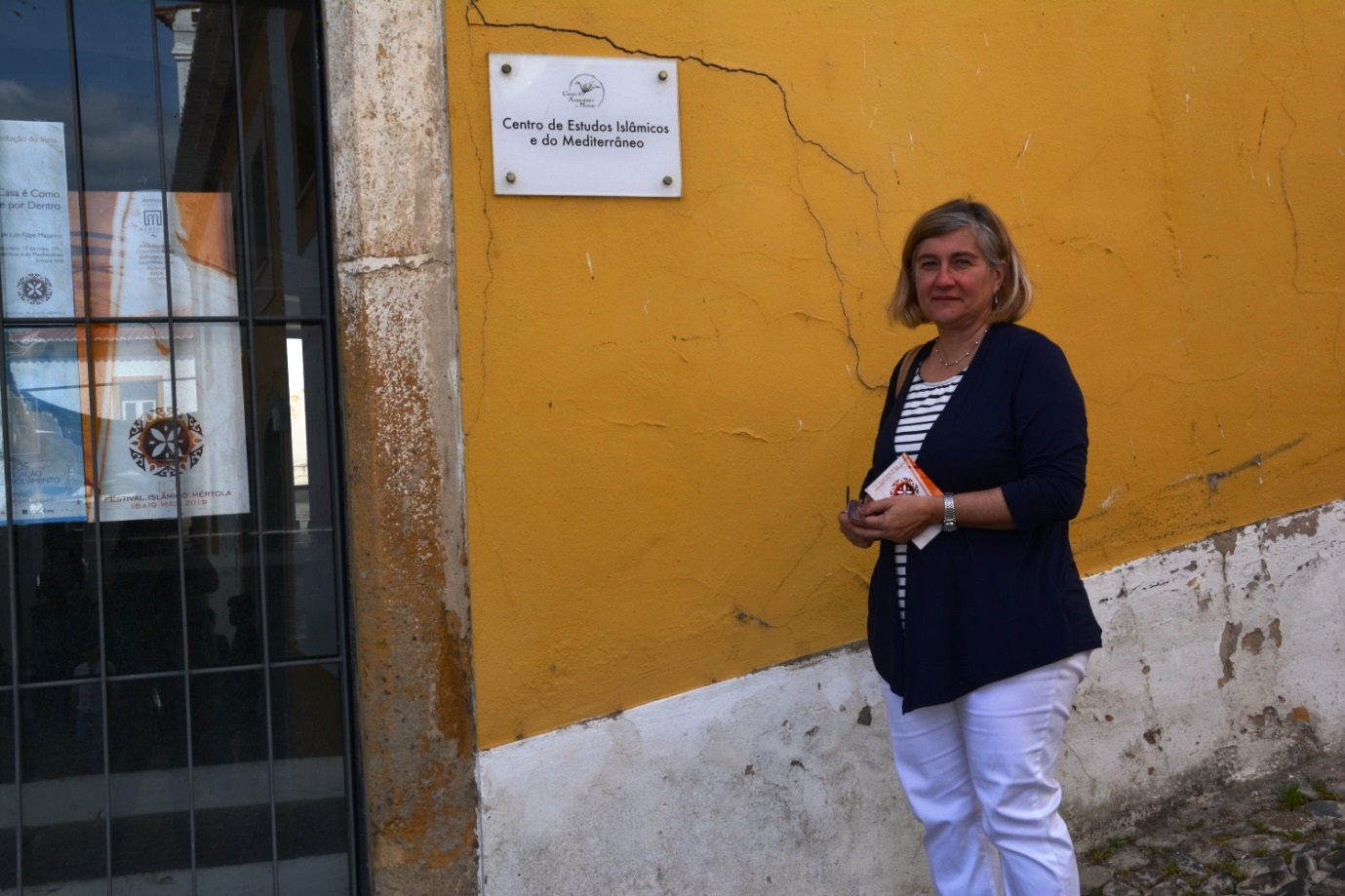Where Christians pray facing Mecca

When archaeologist Claudio Torres first visited Mertola, a small town in the south of Portugal, he stumbled upon broken pieces of pottery near the old townʹs medieval castle. The area on top of a steep hill on the banks of the Guadiana River had been abandoned for several centuries.
Near the ruins, he saw an imposing church with whitewashed walls and horseshoe arches. In its vaulted interior a mihrab, a niche in the wall indicating the direction of Mecca, showed that the church had once been a mosque.
"We realised there were very important traces of the Islamic period in Mertola and quickly started excavations," says Torres, who first visited the town with the historian Antonio Borges Coelho in 1976. The ceramic shards they found under a fig tree turned out to be important Islamic artefacts.
In the 8th century, Muslim armies sailed from North Africa and took control of much of what is now Portugal and Spain. Muslims would rule over a big part of the Iberian Peninsula, known in Arabic as al-Andalus, for several centuries before losing territory to Christian kingdoms.
After the discovery of ceramics from the Andalus period, a team of archaeologists, researchers and students came to Mertola every summer to look for traces of Portugalʹs Islamic history.

"We discovered that Mertola was more important than we had ever imagined," says Torres. The townʹs river port made it a major regional capital, which went into decline after the 13th century.
The significance of the remains found led Torres to establish the Archaeological Field of Mertola in 1978 and move to Mertola permanently with his family.
Since then, archaeologists have uncovered rare Islamic ceramics, a 12th century Almohad quarter and a 6th century baptistry. Mertola now holds one of Portugalʹs most important Islamic art collections. From an impoverished town in a marginalised region of Portugal, it has been transformed into a museum town visited by tens of thousands every year.
But what was discovered in Mertola had much wider implications. It showed deep connections between Europe and Islam and challenged the way history is told in Portugal.Portugalʹs forgotten Islamic past
In the 13th century, King Afonso III of Portugal conquered the last Muslim stronghold in the west of al-Andalus, putting an end to Muslim rule in the western part of the Iberian Peninsula. Two centuries later, Jews and Muslims were forced to convert and expelled from Portugal, which became an exclusively Christian kingdom.
The last area to be conquered from Muslims in Portugal is still known by its Arabic name Algarve (from al-Gharb, the west) and traces of Islamic presence survive throughout the country to this day. But its Islamic heritage has been undervalued and forgotten. Historically, the Muslim has always been presented as the enemy.
"National identity was constructed in opposition to the Muslim. The Medieval past was depicted as a struggle between the Christian north and the Islamic south," explains Susana Martinez, a professor of Medieval History and Archaeology at the University of Evora.
"The northern kingdoms wanted to expand to the south and needed an ideology, so they claimed they were heirs to the Visigothic Kingdom that occupied the Iberian Peninsula before. But they were enemies before," says Martinez. "The Visigothic Kingdom was in constant battle with the northern kingdoms."
Known as the Reconquista, this period of Christian expansion and consolidation of power in the Iberian Peninsula which depicts Muslims as enemies was later associated with the development of nationalist movements and the establishment of nation states in Portugal and Spain. "The idea of Reconquista has also proved popular with dictators, and now itʹs being adapted by far-right parties in Europe," adds Martinez.
But what archaeologists found in Mertola tells a very different story. It shows there was co-existence and continuity between the north and the south of the Mediterranean. "The idea of confrontation and struggle between Christians and Muslims was fostered by the elites," says Martinez.Archaeologists in Mertola want to tell the stories of ordinary people and co-existence in their everyday lives that recorded history has silenced and erased. Their focus is not on the battles and interests of ruling elites, but on how common people from different religions lived together, were buried in the same areas, and shared similar traditions and ways of living.
Continuity across the Mediterranean
For Claudio Torres, the best example of coexistence is Mertola’s church, which is also Portugal’s best preserved medieval mosque – a place where Christians still pray facing the direction of Mecca. "What we found in this town so full of traces of the Islamic past was a sense of continuity," says Torres. His research focusses on the close relations between people across the Mediterranean.
Torres believes that Islam was not imposed by force after battles, but spread gradually through trade in Mediterranean ports. Mertolaʹs archaeological site suggests there were mass conversions to Islam.
Based on the belief of a common past between Portugal and North Africa, Torresʹ work tries to debunk conceptions of Muslims as invaders and Islam as foreign to Europe.

In his youth, Torres was a dissident who opposed the conservative Catholic dictatorship that ruled Portugal until 1974. He was arrested and tortured for his militancy. With no money to pay smugglers to reach safety in France, Torres fled Portugal on a small motorboat to Morocco.
He fled the dictatorship in 1961 with his pregnant wife and other dissidents. They almost drowned in the Mediterranean, in a trip not unlike the sea crossings undertaken today by so many refugees.
Torres came back from exile when the dictatorship ended. Focusing on Portugalʹs Islamic past was his way of working on what was the exact opposite of the far-right Catholic regime. "Our archaeological activity was part of a project for political change," says Torres.
With Islamophobia and intolerance on the rise in Europe, his project could well be more relevant than ever.
Marta Vidal
© Qantara.de 2019
